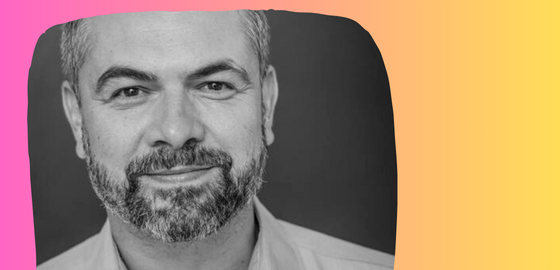"The most exciting developments for the industry are taking place in the background"

© Frankfurter Buchmesse
Holger Volland, CEO of brand eins Medien AG, is one of the guests at "The Hof" on 29 February when the topic will be "Artificial intelligence in publishing". We asked him in advance about the latest developments in AI and what the "Science Network for Mindful Use of AI" is all about.
Registration for the Zoom session "Let's discuss AI"(opens in a new window) on 29 February 2024, 4.00-5.00 pm with Holger Volland and Sara Lloyd from Pan Macmillan, moderated by Felix Zeltner. (free of charge)
The topic of AI was omnipresent at FBM23 in October. What has happened since then, are there any new developments? New approaches to the discussion or even answers to key questions?
The spread of generative AI has been extremely rapid. On the usage side, completely new business models have emerged in specific sectors within the last six months, AI has made it into most office contexts and a whole new aesthetic has found its way into social media. The production side has to deal with lawsuits from numerous copyright groups who doubt the legality of training data, states are considering the economic impact and the EU Digital Markets Act is touching on completely new issues. All of this has happened in just a few months.
Publishing and AI - Which aspect is currently the most hotly debated here and what is your opinion?
The most hotly debated are copyright infringements caused by book corpora in training data for AI or fake books by existing authors such as Jane Friedman. And the most exciting are, of course, autonomously created AI creations. However, these play virtually no economic role. The most exciting developments for the industry are taking place in the background: semi-automated translations, summaries and text editing are becoming much faster and more efficient. The good news is that the entry threshold is so low that even small and independent publishers can utilise new developments.
The public and politicians are mostly thinking about AI in a risk-based way - is that the right approach?
That is definitely an important point! After all, many risks hardly play a role at first, especially for technology companies, so a counterbalance is needed to protect authors, users and society. On the other hand, more productive and positive thinking is needed in politics when it comes to issues such as the promotion of European AI developments or the dissemination of knowledge about AI in education.
Who and what is behind the "Scientific Network for Mindful Use of AI" and what is the initiative's mission?
Z-Inspection was founded to develop international, non-profit and, above all, interdisciplinary standards for the implementation of trustworthy AI projects. Behind it is a network of AI experts and academics from all over the world. There are now 26 Affiliated Labs at universities from Finland to Nigeria working with the Z-Inspection process. For Roberto Zicari, the founder, for example, it was particularly important that a development is not based on biased data or is completely explainable and transparent.
Holger Volland is CEO of brand eins Medien AG in Hamburg. As an expert with more than 25 years of experience of digital transformation in the media and culture sector, responsible technological growth is of particular concern to him. He is an author on the topics of digital transformation and AI and is published by major national and international publishing houses. He is also an experienced keynote speaker and lecturer in the field of digitalization, media and culture (St. Gallen, Goethe-Institut, DLD, Art Directors Club, SXSW, Frankfurter Buchmesse, etc.). He is an active member of Z-Inspection(opens in a new window), the interdisciplinary science network for the Mindful Use of AI, and the Sonophilia Foundation for Applied Creativity.
